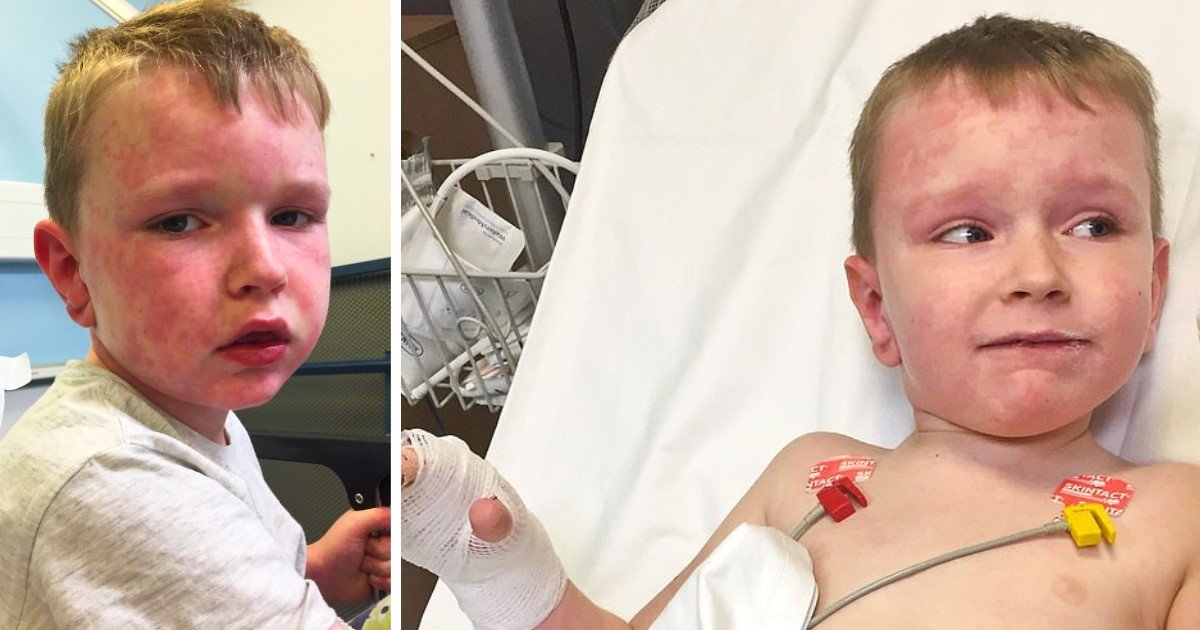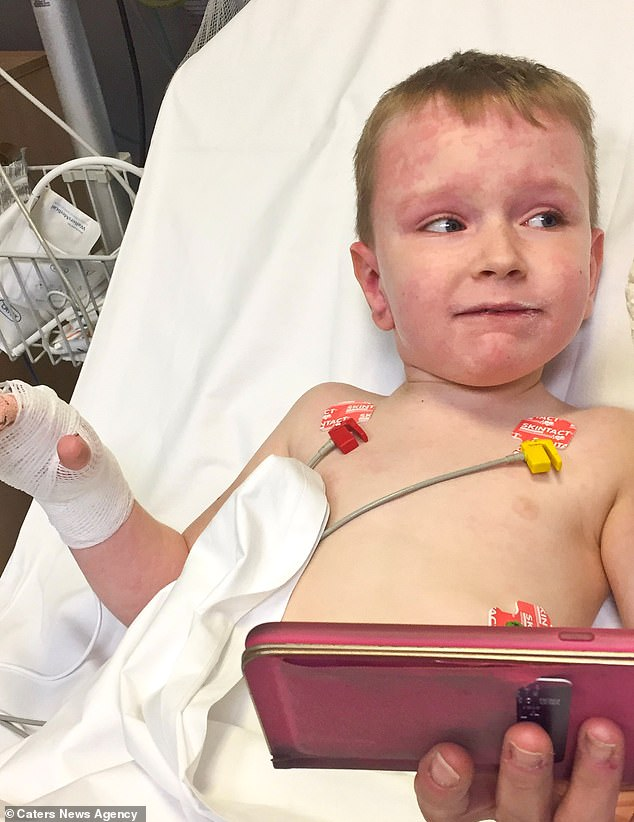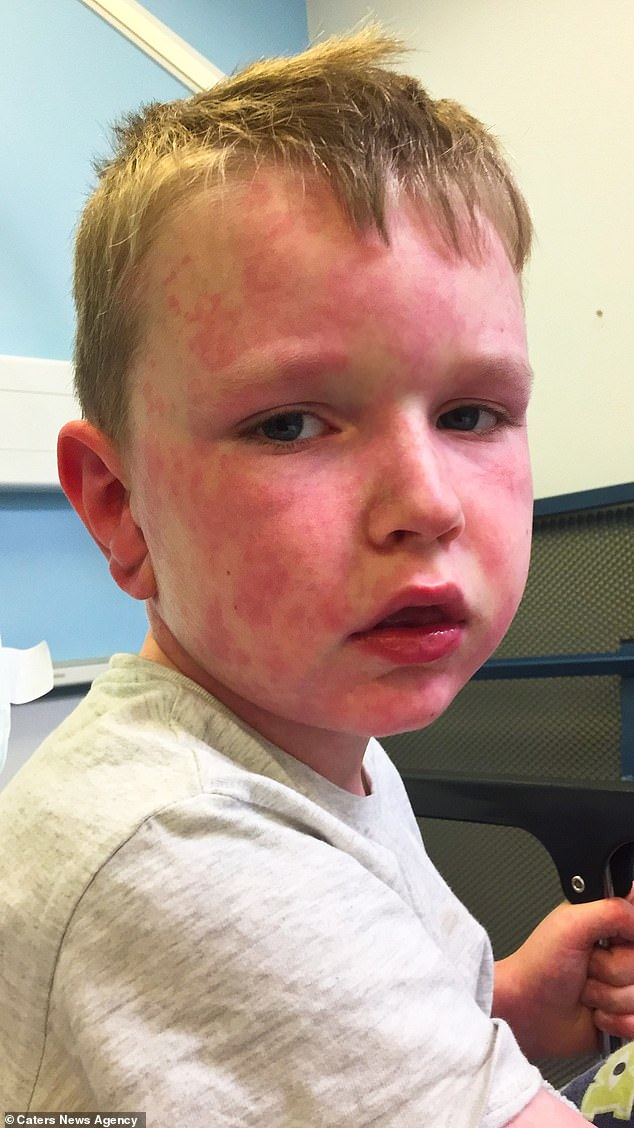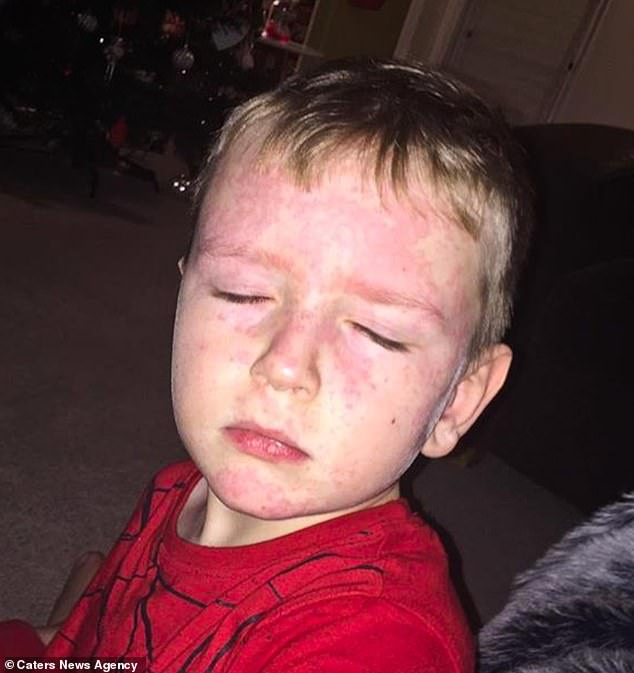A seven-year-old boy has to be hospitalized for the whole winter because of a rare allergic condition caused by cold weather.
Tommy Leitch spent the last winter in hospital as the allergy made it difficult for him to breathe. It induced vomiting and in extreme cases, he used to get covered in a rash from head to toe.
The little boy suffers from extreme angioedema and urticarial abnormalities that induce the formation of hives and swelling under the skin.
Abigail McDonald, 26, the mother of Tommy, revealed that even wrapping the boy in several clothes to prevent getting cold is not an effective defense mechanism because the boy is also sensitive to heat.
Due to the life-threatening nature of the disease, Abigail has to be on the watch for the symptoms to appear because the child needs immediate medical attention when he gets the allergy.
Urticaria, in extreme cases, can lead to anaphylactic shock and angioedema can lead to a swollen tongue, hence constricting airways.
Abigail, who has two children and lives in Amersham, Buckinghamshire, said: “Last winter he was hospitalized every month as his allergic reaction caused him to violently vomit, struggle to breathe and was delirious.
“It’s a horrific condition and I always panic about it as it can be life-threatening if Tommy doesn’t get urgent medical attention.
“It is heartbreaking to witness my little boy with an oxygen mask on and with wires hanging off him in hospital but he is so brave.”
Abigail noticed a minor rash on her son’s head when he was just five.
Speaking of that, she said: “I thought it was just a viral infection but the next morning he was covered from head to toe and complaining of stomach and chest pains with a swollen face and stomach.
“We immediately took him to the hospital, and he was given anti-histamines and adrenaline and we were referred to a dermatologist who diagnosed him with cold urticaria and angioedema.”
According to the stats from the British Skin Foundation, one in every five people suffer from urticaria at some point in life.
The exact trigger of urticaria is often unknown but it can be caused by sunlight, friction, hot or cold weather and sometimes even water.
According to the National Organization of Rare Disorders, one to three percent of urticaria cases are linked with cold weather.
Doctors suggest patients head straight to Accidents and Emergency department of the nearest hospital if they have symptoms like difficulty in breathing, vomiting, or if they feel dizzy and can’t swallow.
These can be the precursor of life-threatening anaphylactic shock.
Angioedema is also closely related to urticaria but in this condition, the swelling occurs beneath the skin in regions near the eyes and lips.
The US National Library of Medicine stats show that one in every fifty thousand people suffer from angioedema.
Abigail said: “I am always on guard as we never know when it is going to happen which makes it even scarier.
“Tommy starts to worry as soon as he sees the rash which I think makes the rash worse. As the years have gone on, we have noticed it is both hot and cold weather conditions that cause him to have a flare up.”
The unforeseeable nature of the disease Tommy is suffering from has made it very difficult for the family to do normal family activities.
Abigail and her partner Ben Leitch have even postponed their marriage ceremony abroad fearing the triggering of Tommy’s urticaria and angioedema.
Abigail said: “He has missed out on lots of play dates with his friends and as a family we have been unable to go on holiday or on day trips as I am too anxious in case it happens when we are on the plane or abroad.”
Urticaria and angioedema are treated with oral or injectable anti-histamines and steroids depending on the severity.
In order to keep him at the optimum temperature which is around 20 degrees Celsius, Tommy’s mom has to take great care of his clothing too.
Tommy wears a t-shirt and jacket in winters, a UV protecting swimsuit in summers, and he can’t remain in the sun for more than 20 minutes.
Tommy has now understood the nature of his illness and he tries to judge the symptoms before the actual severity of his disease kicks in.
If he notices it right, he recovers only with the help of the anti-histamine his mother gives him. But in extreme cases, he has to be shifted to the hospital.
Abigail said: “I had no idea people could be allergic to temperatures before Tommy which I think makes it even more difficult.
“There aren’t any leaflets in my local GP so I have had to turn to Facebook support groups to learn more and try and find remedies on how to reduce the flare ups.”
Replaced!






